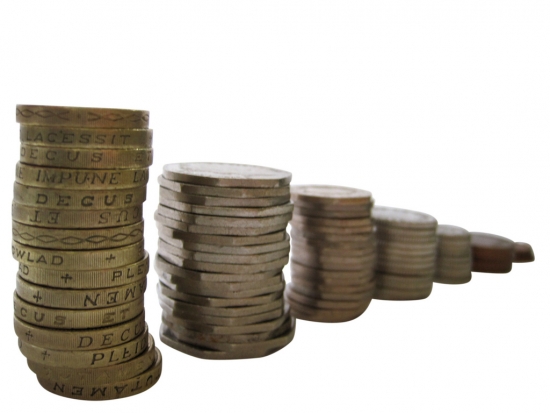(Image credit: Images_of_Money via Flickr Creative Commons)
It might seem counter intuitive, but there’s an argument to be made that cutting renewable energy subsidies might not be a bad thing for the industry, and rising CO2 levels as well. On the surface, renewable subsidies have worked as a financial incentive to build more solar, wind and hydro projects, but it’s also led to projects that (despite adding power to the local grid) haven’t driven a proportional decline in carbon emissions or caused coal and gas power to scale down significantly. Maybe a rethink of the big picture for renewable energy and climate change marks the beginning of a smarter way price to carbon and promote renewable energy on a more sustainable, long term basis.
Here’s the basic problem. Subsidies have made wind and solar projects very attractive in the EU and the USA. However, they still have to feed a power grid that needs a consistent base load of electricity. Put simply, when millions of people boil their kettle for their morning coffee at 7 a.m. the grid has to be able to meet the demand. So if it’s dark and cloudy, or the wind has dropped (which is a normal part of the weather in much of the Northern hemisphere) where does the base load capacity come from? Coal and gas power. Until energy storage technology develop at a practical scale, there’s no real alternative to keeping the coal fires burning. This is a fact of life in countries north of the Mediterranean where the coal and gas power needs to stay on as a back up incase the renewables aren’t producing the base load requirements.
In the right geography, like Chile’s Atacama Desert (where we’re building) the consistent solar irradiation means the base load problem isn’t an issue. In somewhere like the UK or Germany, however, it remains a thorny problem to solve.
It’s a simple problem which means that, despite developing huge potential renewable energy supplies in many northerly climates, the carbon that’s being emitted remains pretty consistent because there’s no scaling back of traditional fossil fuels. When you consider in the last couple of years we’ve seen increasing pressure on the EU and national governments to reduce subsidies for renewable energy, with cuts tabled for wind power and solar subsidies, it looks like the incentive to transition away from fossil fuels might disappear with them.
However, that’s assuming carbon prices remain low and carbon remains untaxed. In a recent interview, Larry Summers the US economist (and influencer in US economic policy) has proposed that with oil prices dropping and coal remaining low, a tax on carbon is a real possibility. This could be a real incentive to keep the renewable development process rolling. A tax on carbon emissions would incentivise cleaner energy, not just renewables but also more sustainable low-carbon fossils (such as lighter fractions of natural gas) as well as biofuels.
However more than that, it would reinvigorate the carbon credit market. That would be a huge boost for the renewable energy business. It would mean that renewable energy generators could accrue more carbon credits and trade them via mechanisms such as the Clean Development Mechanism, adding substantially to the bottom line of their own balance books.
A carbon tax might just be the right stimulus to incentivise renewable energy further and make renewable energy significantly more profitable, reducing the cost to local economies of high feed-in tariffs whilst simultaneously maintaining good returns for investors in clean energy. But will it happen? Given the forthcoming global emissions treaty under discussion and the overwhelming support for reducing carbon emissions, plus the slump in oil prices, it’s looking more and more likely. In any case, we should expect more disruption within traditional energy markets and renewables as the subsidies wane and emissions get capped. A balance between those two opposing forces will emerge in time.
Here’s some more links to recent subsidy cut news… we’d love to hear your views on the issue too.
Larry Summers call for a Carbon Tax
Onshore Wind Farm subsidies to be scrapped post 2015? (UK)
Don’t waste expanding fiscal room
How the oil price slump helps renewable energy

1 thought on “Are renewable subsidy cuts good for carbon emissions?”
Comments are closed.